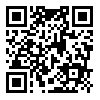1- Assistant Professor, Department of Psychology and Counseling, Farhangian University, Tehran, Iran , s_stovar@yahoo.com
2- Assistant Professor, Department of Mathematics Education, Farhangian University, Tehran, Iran
3- Assistant Professor, Department of Educational Sciences, Farhangian University, Shiraz, Iran.
2- Assistant Professor, Department of Mathematics Education, Farhangian University, Tehran, Iran
3- Assistant Professor, Department of Educational Sciences, Farhangian University, Shiraz, Iran.
Abstract: (1331 Views)
Metacognitive models of anxiety disorders emphasize the predictive role of metacognitive beliefs in the experience of negative emotions. Also, the selection and implementation of coping strategies are considered to be the main determinants of the persistence or termination of psychological disorders.The present study aimed to predict math anxiety based on dysfunctional metacognitive beliefs in sixth grade elementary school students. The design of this study was a cross-sectional correlational study. The statistical population of the present study was all girl and boy students in the second year of elementary school (sixth grade) in Shiraz. The sample size in this study was calculated based on the Cochran formula and their number was 226 students (115 girls and 111 boys) who were selected by cluster sampling method. Mathematical Anxiety Scale (MASC) by Chiu and Henry (1990) and Metacognition Questionnaire 30 (MCQ-30) by Cartwright-Houghton and Wells (2004) were used to collect data. The reliability of the tools was also checked using Cronbach's alpha coefficient and it was favorable. The information obtained in this research was analyzed using spss software and using correlation and multiple regression analysis. Finding of the correlation coefficient showed that there is a significant correlation between the dimensions of metacognitive beliefs and the dimensions of math anxiety.The results of the regression analysis showed that positive beliefs about worry, cognitive confidence and cognitive self-awareness are predictive of math learning anxiety, uncontrollability of thoughts and danger and cognitive confidence are predictive of math assessment anxiety, cognitive confidence is predictive of math teacher anxiety, cognitive confidence and cognitive self-awareness are predictive of math problem solving anxiety and the total score of math anxiety. Based on the research findings, it can be concluded that with the increase in negative and distorted metacognitive beliefs, math anxiety also increases. Therefore, interventions that improve and correct negative metacognitive beliefs can reduce math anxiety in students. The practical and theoretical implications of the research were discussed.
Article number: 8
Type of Study: Research |
Subject:
Special
Received: 2025/01/5 | Revised: 2026/01/16 | Accepted: 2025/09/17 | ePublished ahead of print: 2025/09/22 | Published: 2025/12/31
Received: 2025/01/5 | Revised: 2026/01/16 | Accepted: 2025/09/17 | ePublished ahead of print: 2025/09/22 | Published: 2025/12/31
Send email to the article author
| Rights and permissions | |
 |
This work is licensed under a Creative Commons Attribution-NonCommercial 4.0 International License. |



